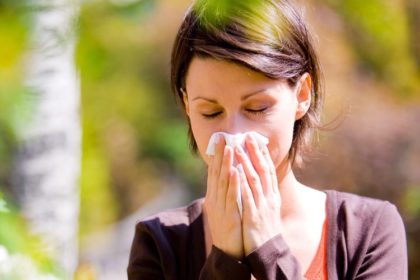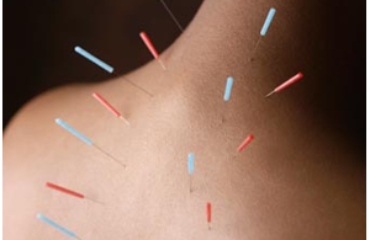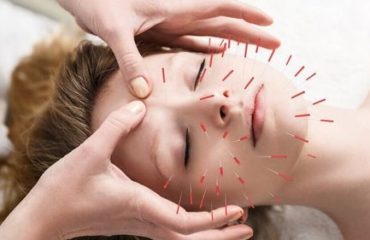
Allergic Rhinitis – also known as “hay fever” – is one of the most common health conditions in the world, affecting hundreds of millions of people. While symptoms vary and can range from mild to acute, anybody who suffers from hay fever will tell you that it is definitely not fun. Over the past few years, a number of studies have shown that Traditional Chinese Medicine (TCM) – specifically the use of herbs and acupuncture – can significantly reduce the primary symptoms of hay fever. For those who spend the Spring and Summer with itchy eyes, runny noses, and uncontrollable sneezing, this should be wonderful news.
Causes & Symptoms of Allergic Rhinitis
In basic terms, allergic rhinitis occurs when a person breathes in one of many common allergens: dust, pollen, animal dander, mould. When this happens, the body releases chemicals, which then cause an allergic reaction. This is when symptoms occur. Technically, hay fever is an allergic reaction to pollen, one of the most common allergens. However, it has become a kind of catch-all phrase to describe allergies. Some of those most common symptoms of allergic rhinitis:
- Runny nose
- Nasal congestion
- Sneezing
- Itchy eyes and nose
- Watery eyes
Sneezing is one of the most common symptoms of allergic rhinitis. Secondary symptoms can also occur after prolonged or repeated exposure to allergens:
- Sore throat
- Headache
- Fatigue
- Coughing
- Plugged ears
Using Acupuncture
Many recent studies have shown that acupuncture is highly effective at relieving the symptoms of allergic rhinitis. This is mostly due to the holistic approach that acupuncture uses when dealing with the human body and its many conditions. Acupuncture uses tiny needles and specific acupoints to target specific organs (heart, lung, kidneys) and energy pathways (qi) that impede the body from functioning at its highest level. Our body’s inability to absorb or “deal with” allergens is an example of this.
Acupuncture is an effective treatment for hay fever
By painlessly inserting needles at up to 6 specific acupoints, your Traditional Chinese Medicine practitioner can safely target the parts of your body that cause hay fever symptoms to occur. Where Western medicine focuses mainly on the symptoms, TCM and acupuncture focus instead on the causes of the symptoms so that they won’t recur. One recent study found that acupuncture alone has a 67% success rate at relieving the symptoms of allergic rhinitis, while herbal remedies had a 71% success rate.
A combination of herbs can relieve the symptoms of hay fever.
Using Herbs
Like with the use of acupuncture, herbal remedies are prescribed by your TCM doctor to target the causes of the symptoms, not just the symptoms themselves. For example, you would be given a certain mixture to relieve “watery” symptoms (runny nose, watery eyes, sneezing), and another to relieve “dry” symptoms (dry skin, itchy eyes). Generally, the herbal mix will be mixed with water and ingested. The amount you take, and how often, will be prescribed individually by your TCM practitioner. It is important to understand that Chinese herbs have been used for centuries to cure a huge number of ailments and conditions, including allergic rhinitis.
While acupuncture and herbs have both been proven to effectively treat allergic rhinitis and hay fever, researchers in the same study mentioned above found that the use of acupuncture in conjunction with herbal remedies was more effective treatment at treating the symptoms of allergic rhinitis than only using one or the other. What is perfectly clear, however, is that if you are suffering from allergies and hay fever, TCM will help you feel better.
If you are suffering from allergic rhinitis or hay fever, and would like to try acupuncture and herbal remedies as a safe way of relieving your symptoms, or are interested in any other aspects of Traditional Chinese Medicine, book an appointment today by phoning (604)-260-2713 or visit our location today.



